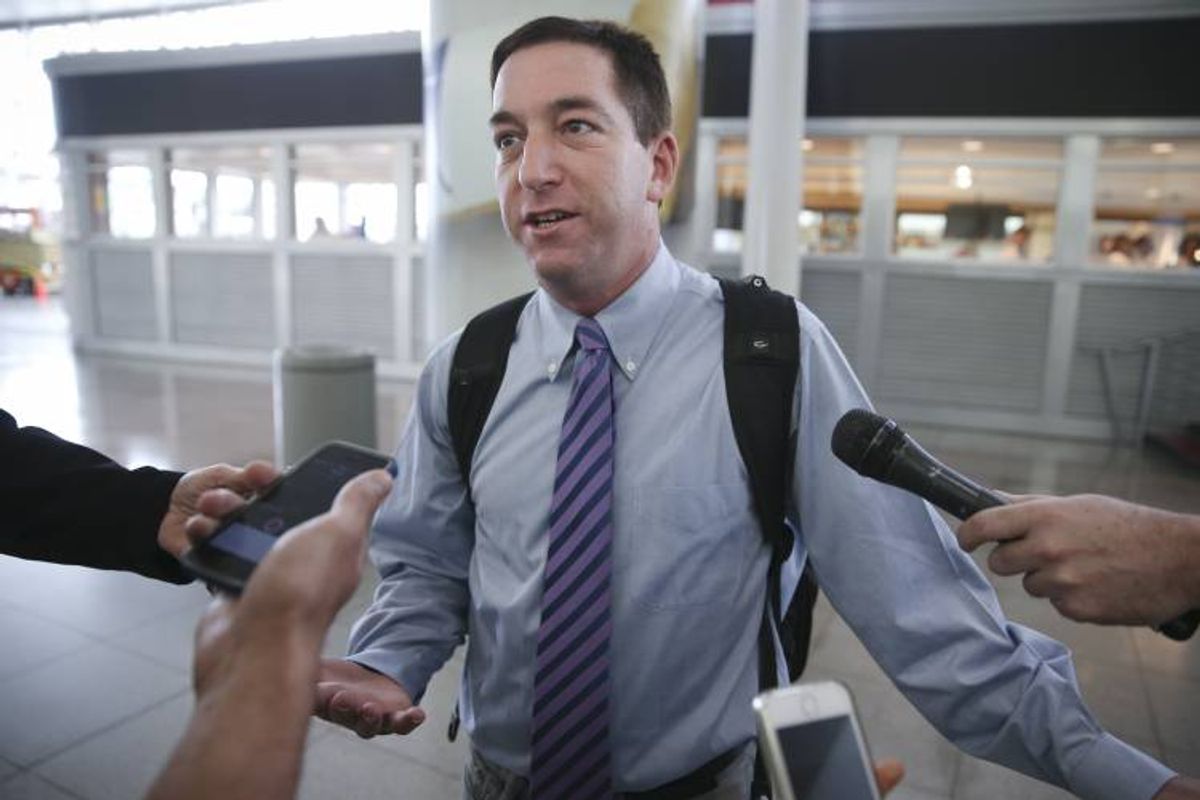Despite fear over detention by the authorities, journalists Glenn Greenwald and Laura Poitras -- the first reporters to meet with Edward Snowden and receive access to his trove of leaked NSA documents -- reentered the U.S. without trouble.
Both journalists feared detention or at the very least questioning on returning to U.S. soil. The Justice Department had refused to give any information about whether Greenwald and Poitras might be subject to a grand jury investigation. Furthermore, last year Greenwald's partner, David Miranda, was held at Heathrow airport for nine hours, his electronic devices confiscated, under a U.K. counterterror act. In this age, when journalism is all too often aligned with terrorism, Greenwald and Poitras were understandably concerned. Indeed, Poitras has been questioned for hours on end at U.S. airports in the past over her journalistic work pre-dating the Snowden leaks.
But, as Greenwald told reporters Friday, he "expected that they wouldn't be that incredibly stupid and self-destructive to try and do something that in the eyes of the world would be viewed as incredibly authoritarian. ... That would forever undermine their ability to criticize other governments for imprisoning journalists and for having a constitutional fight over the First Amendment that successive administrations have wanted to avoid."
And indeed, the U.S. authorities were not so stupid, and Poitras and Greenwald entered the U.S. safely. That the two journalists feared detention at all remains grimly reflective of what whistle-blower attorney Jesselyn Raddack calls the current "war on information." Lest we forget, Barrett Brown and Chelsea Manning sit behind bars; Edward Snowden faces hefty charges under the Espionage Act; AP journalists' phone logs were surveilled by the DOJ; Fox News correspondent James Rosen was once named by the FBI as a possible “co-conspirator” in a crime for the journalistic act of obtaining leaked information. The NSA revelations, shedding light on a vast and unbounded corporate-government surveillance nexus, have unquestionably been in the public interest. The whistle-blower behind them should not fear persecution, nor should the journalists reporting the story. But where Poitras and Greenwald can point to the First Amendment (or whatever meek vestiges of it that the U.S. cares to recognize), Snowden has no such recourse and no such protection.
Indeed, the Obama administration in the last year has engaged in subtle realpolitik to define who gets to be a journalist -- and walk free on U.S. soil -- and who gets locked up as an enemy of the state for making public classified information. In damage limitation mode, following revelations that the Justice Department had been spying on AP reporters’ phone records, the White House pushed for a federal media shield law last May, notably leaving an amorphous loophole for instances when national security was deemed at risk. Obama has consistently stated he does not wish to persecute the press or diminish media freedom. The meat of important journalistic enterprise, though -- sources and whistle-blowers -- is more at risk than ever. Under this presidency, Espionage Act charges have been brought against individuals eight times over leaks; that's more than all presidential administrations combined.
So, it is at the very least not-stupid that the U.S. government let Greenwald and Poitras reenter the U.S. without hindrance today. The journalists traveled here to receive a shared George Polk Award for national security reporting (well-deserved indeed). But we have little grounds here for celebration: Snowden is still a fugitive; challenging and revealing the chilling underbelly of our national security state remains a disturbingly high-risk activity.

Shares